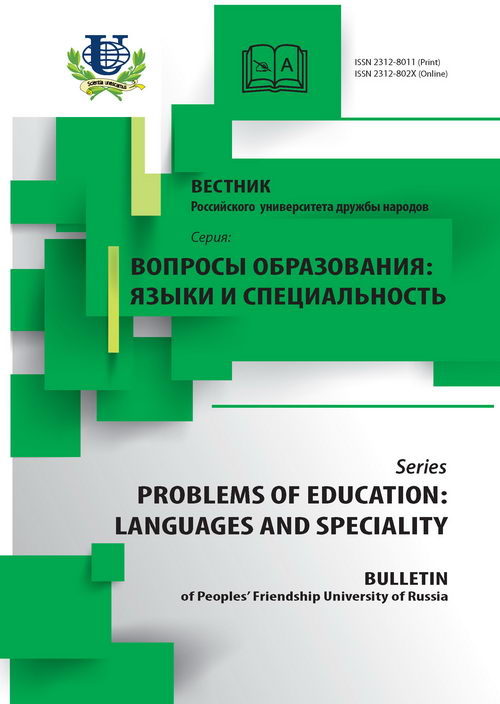THE SPECIFICITY OF LANGUAGE EDUCATION IN THE CONTEXT OF INSTITUTIONAL BILINGUALISM
- Authors: Astvacatrjan MG1
-
Affiliations:
- The Armenian State Pedagogical University after Khachatur Abovyan
- Issue: No 5 (2015)
- Pages: 44-48
- Section: EDITORIAL
- URL: https://journals.rudn.ru/polylinguality/article/view/13008
- ID: 13008
Cite item
Full Text
Abstract
The article focuses on the phenomenon of institutional subordinative bilingualism and multilingualism and its manifestation in the convergences between different languages. It indents to present the problem of plurilingual education and didactic platform in the context of national specific dimensions across the globe. The importance of the phenomenon ‘national institutional subordinative bilingualism’ must be emphasized through enhancing its relevant features as a base for foreign language teaching and learning at national school, i.e. the mobile dynamic nature of the institutional subordinative bilingualism is a key point a of languages learning depending on the character of interconnected correlation of languages (transfer, interference). Under these circumstances, a student may progressively master different stages of a second (Russian) language proficiency. Specific learning environment has an impact on the process of acquiring foreign language skills, and predetermines to a great extent the categories of aims, content, principles, organizational forms of teaching, as well as, the achievement of final result (outcomes).
About the authors
M G Astvacatrjan
The Armenian State Pedagogical University after Khachatur Abovyan
References
Supplementary files














